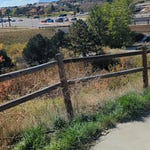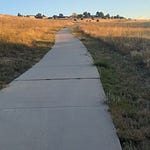Main Idea
Joshua 19 records the division of the remaining land among Israel’s tribes, demonstrating God’s faithfulness in fulfilling every promise and closing the conquest era with each tribe securely settled in its inheritance.
Key Verse
“So the land had rest from war.” (Joshua 19:51)
Commentary
Joshua 19 concludes the account of Israel’s land division, bringing to completion what began when the tabernacle was established at Shiloh. Seven tribes still needed to receive their inheritance, and this chapter carefully details how each received its portion by lot before the Lord. It is a chapter of completion—God’s promises, given to Abraham centuries earlier, are now tangibly fulfilled.
The first allotment goes to Simeon (vv. 1–9). Their inheritance lies within the territory of Judah, in the southern part of the land. Because Judah’s portion was larger than they needed, Simeon’s territory is carved out of Judah’s excess. This arrangement reflects both generosity and unity among the tribes. The nation’s strength lies in mutual cooperation, not competition.
Next comes Zebulun (vv. 10–16), whose territory lies in the fertile northern valleys. Then Issachar (vv. 17–23), whose land stretches through rich agricultural areas near the Jezreel Valley. Asher (vv. 24–31) receives a coastal inheritance along the Mediterranean, known for trade and wealth, while Naphtali (vv. 32–39) occupies territory in the northern highlands around the Sea of Galilee. Finally, Dan (vv. 40–48) is assigned land in the west near the Philistines but struggles to hold it. Facing opposition, they later migrate north and capture the city of Laish, renaming it Dan.
Each of these allotments reveals the variety of God’s provision. Some tribes received fertile plains, others rugged mountains or coastal trade routes. Each portion was uniquely suited to God’s purpose for that tribe. The diversity of inheritance mirrors the diversity of gifts within the body of Christ—different but all part of one divine design (1 Corinthians 12:4–7).
The chapter concludes with a striking act of humility. After all the tribes have received their inheritance, Joshua himself receives a portion—Timnath Serah, in the hill country of Ephraim (vv. 49–50). The leader who had divided the land for others waits until everyone else is settled before taking his share. His example points to servant leadership: true greatness in God’s kingdom is found in serving others first.
The closing verse, “So the land had rest from war” (v. 51), is more than a geographical statement—it is theological. The conquest is complete, and God’s people dwell in peace because His promises have been fulfilled. Yet this rest is not final; it points ahead to a greater rest. Hebrews 4:8–9 teaches that Joshua’s rest was temporary, a foreshadowing of the eternal rest found in Christ.
Life Application
Joshua 19 teaches us to celebrate the faithfulness of God. Every tribe received its inheritance exactly as God had promised. Centuries had passed since the promise to Abraham in Genesis 12, but not one word of God failed. His timing may seem slow to us, but His faithfulness never falters. We can trust that He will fulfill every promise in His time.
The placement of Simeon’s inheritance within Judah’s borders reminds us that God’s blessings often involve cooperation and sharing. The tribes were not meant to live in isolation but in mutual dependence. Likewise, the church thrives when believers share generously, bearing one another’s burdens and celebrating each other’s blessings rather than competing for prominence.
Joshua’s humility at the end of the chapter provides a powerful model for leadership. Though he was the hero of Israel’s conquest, he waited until every tribe was settled before taking his own portion. His life reflects Jesus’ teaching that “the greatest among you will be your servant” (Matthew 23:11). Spiritual leadership is not about privilege but about stewardship and sacrifice.
Finally, the “rest from war” in verse 51 invites us to reflect on the greater rest that Christ offers. Our world is filled with striving and struggle, but Jesus calls, “Come to me, all you who are weary and burdened, and I will give you rest” (Matthew 11:28). The peace Joshua gave was temporary; the peace Christ gives is eternal.
What Can I Do?
Take time this week to celebrate God’s faithfulness in your own life. Make a list of specific promises or prayers He has fulfilled and thank Him for His unchanging reliability.
Practice servant-hearted generosity—look for one concrete way to bless or assist someone else before seeking your own comfort or reward.
Ask Yourself
How does the completion of the land division encourage me to trust God’s timing and faithfulness?
What can I learn from Simeon and Judah about generosity and cooperation among God’s people?
How does Joshua’s humility in receiving his inheritance last challenge my understanding of leadership?
What areas of my life still need to experience God’s rest and peace through trust in Christ?
How can I use my unique “inheritance”—my gifts, resources, and opportunities—to bless others?
Guided Prayer
Thanksgiving: Thank God for His unfailing faithfulness and for the ways He has fulfilled promises in your life.
Intercession: Pray for leaders in your church and community to model Joshua’s humility and servant-heartedness.
Petition: Ask God to help you trust His timing, cooperate generously with others, and rest in His promises.
Confession: Confess any impatience, pride, or self-focus that keeps you from celebrating God’s blessings or serving others first.
Praise: Praise God as the faithful Promise-Keeper who fulfills every word, the Giver of true rest through Christ, and the Lord who unites His people in peace.







